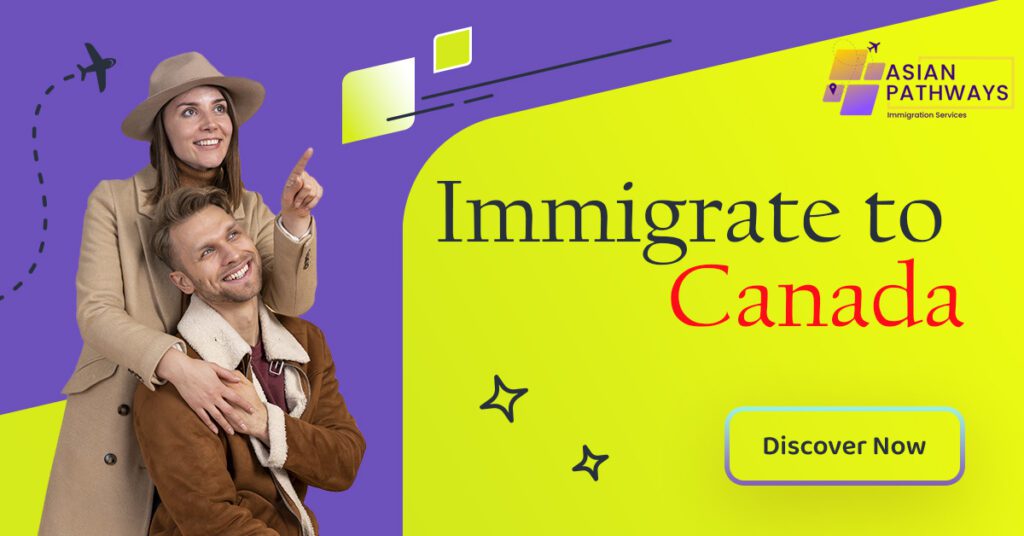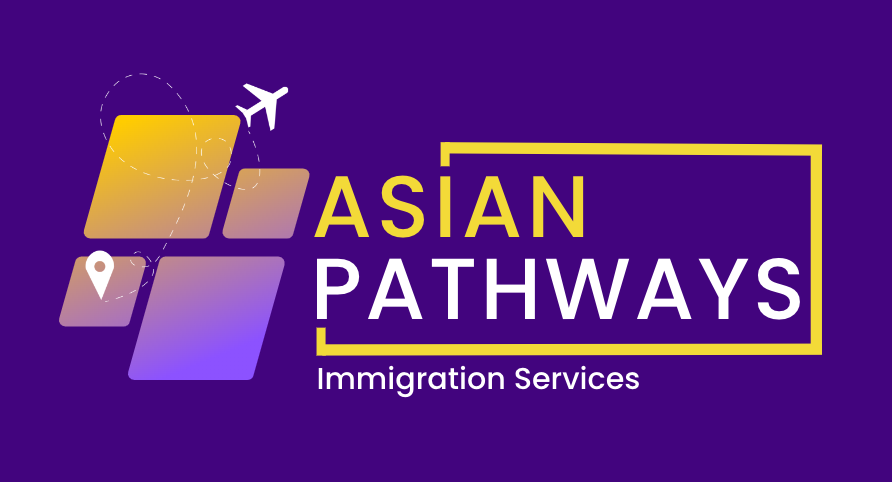We here an Asian Pathway Immigration Services can provide you with some general information about immigration to Canada that might be helpful for you. If you have specific questions or topics you had like us to cover, feel free to let us know.
Here are some potential topics we could cover in an immigration to Canada blog:


How to Immigrate from UAE to Canada
Detail of the various immigration pathways to Canada, such as Express Entry, Provincial Nominee Programs (PNPs), Family Sponsorship, and more. Explain the eligibility criteria and requirements for each program.
How to immigrate to Canada having a visit visa or work permit visa. Both are the two categories of visas you can have for Canada. Criteria for both of these visas are shared here.
Canada Visit Visa
- Valid Passport: You must have a valid passport that will not expire.
- Application Form: You need to fill out the appropriate application form, which is usually
- the “Application for Visitor Visa
- Purpose of Visit: Clearly state your purpose for visiting Canada. This could be for
- tourism, business meetings, visiting family or friends, attending
- conferences, or other valid reasons.
- Proof of Funds: Bank statements, pay stubs, and other financial documents.
- Letter of Invitation (if applicable): If you’re visiting family or friends in Canada, you might need a letter of invitation from your host.
- Proof of Temporary Stay: This could include a return ticket or proof of ongoing commitments in your home country.
Canada Work Permit
The criteria for obtaining a work permit in Canada can vary depending on the specific type of work permit you are applying for.
Job Offer: In most cases, you will need a job offer from a Canadian employer before you can apply for a work permit. The job offer must typically be supported by a Labor Market Impact Assessment (LMIA), which demonstrates that there is a need for a foreign worker to fill the position.
LMIA Exemptions: Some work permits do not require an LMIA. This can include work permits under international agreements (e.g., NAFTA, CETA), intra-company transfers, open work permits for spouses/common-law partners of skilled workers or international students, and more.
Temporary Resident Visa (TRV): Depending on your nationality, you might need to apply for a TRV (visitor visa) in addition to a work permit. Citizens of certain countries are visa-exempt.
Proof of Funds: You may need to show that you have enough funds to support yourself and any family members who accompany you to Canada during your stay.
Duration and Renewal: Work permits are usually issued for a specific duration. Some permits can be renewed or extended, but this isn’t always guaranteed.
Language Requirements: Depending on the nature of the job and the work permit category, you might need to demonstrate your proficiency in English or French.
Biometrics: You might need to provide biometric information (fingerprints and photographs) as part of the application process.
Processing Times and Fees: Processing times and fees can vary, so it’s important to check the latest information on the IRCC website.
In conclusion, immigration to Canada offers a multitude of opportunities and benefits for individuals and families seeking a better quality of life, economic prosperity, and a welcoming multicultural society. As immigration policies and regulations may evolve, it’s essential for individuals considering immigration to Canada to stay updated with the latest information from official government sources.


